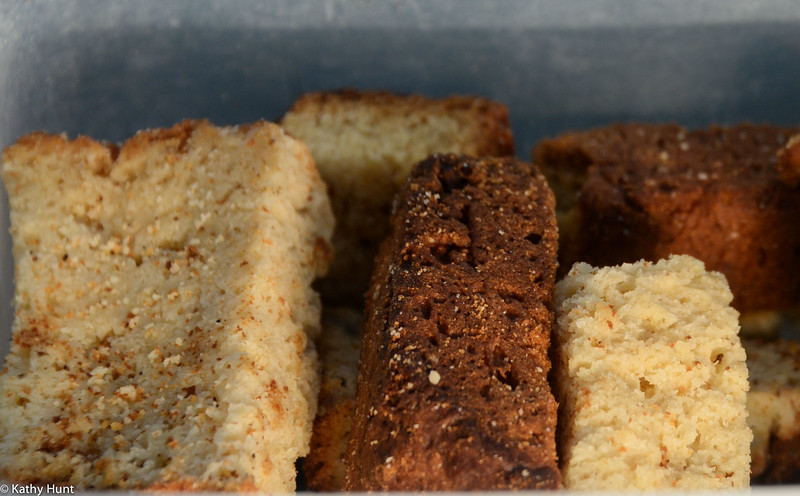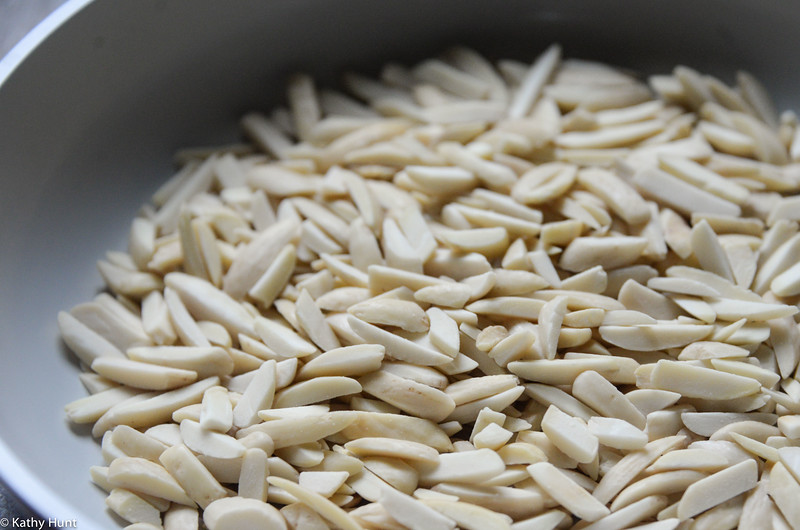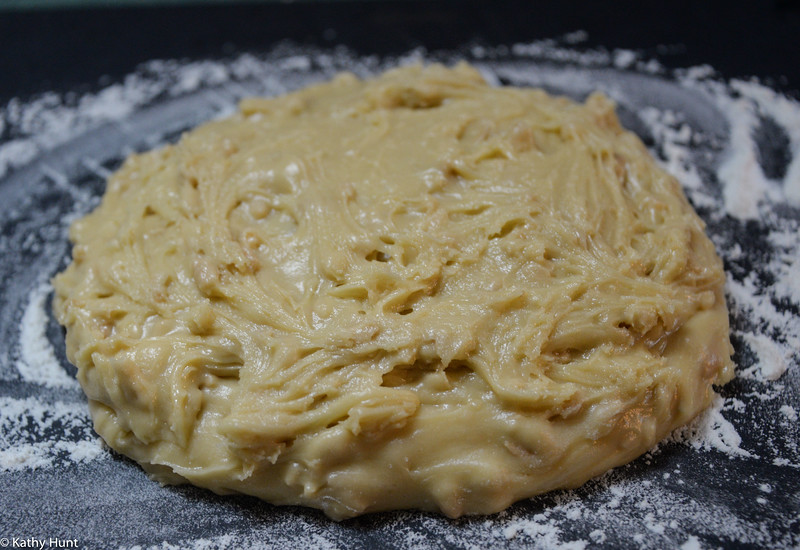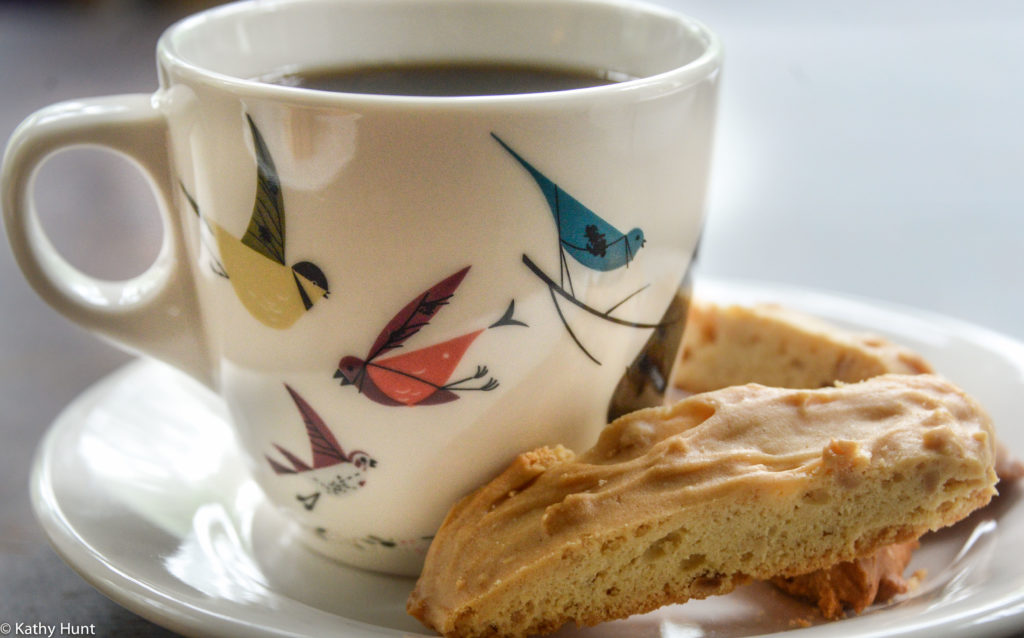Last month I had a Marcel Proust-madeleine moment where a bite of a baked good—in my case, a rusk—brought back memories of a long ago event. Unlike Proust’s profound experience, where I ate this cookie was far more interesting than the memory itself. Chewing on a nut-flecked rusk while I stared out at four graceful impalas drinking from a water hole in South Africa’s Kruger National Park, I remembered that a decade ago I had written a syndicated article about twice-baked cookies and that that article had included rusks. Yeah, my memory wasn’t nearly as cerebral as Proust’s, either.

Four impala drinking water while I enjoy coffee and a rusk
Rusks have featured in South African cuisine since the 18th century, when Dutch farmers or boers living in South Africa looked for ways to make bread last longer. By baking loaves of dough twice, they learned that they could remove all the moisture from the loaves. This gave their bread or rusks an almost endless shelf life. In times when food was scarce and shopping for supplies involved traveling long distances over hot, barren landscapes, they provided sustenance. Thanks to their portability and durability, farmers, frontiersmen, soldiers, sailors and everyday citizens all ate rusks.

An assortment of irregularly shaped rusks
Traditional rusks use a scant amount of sugar and no flavorings. Modern recipes, though, include everything from nuts to seeds, dried fruit or chocolate chips. Keep in mind that, if you want your rusks to last longer than a few weeks, don’t include ingredients high in moisture. If you do add dried fruit, chop it finely. If you use chocolate chips, use them sparingly.
Today rusks might be part of breakfast, morning coffee or afternoon snack. No matter when you consume them, one rule remains in place. Due to their hard texture you have to dunk them into coffee or tea before consuming. The same holds true for other twice-baked cookies such as biscotti, paximadia or mandelbrot.

Dunking a rusk into my morning coffee in Kruger National Park
ALMOND RUSKS
Makes about 4 dozen
1 cup blanched almonds, toasted and chopped
3 cups all-purpose flour
1 1/2 teaspoons baking powder
1/2 teaspoon salt
1 cup sugar
3 large eggs
2 teaspoons almond extract
3/4 cup vegetable oil
Preheat oven to 350˚F. Grease two baking sheets.
Lightly toast the almonds in a pan on the stove or in the oven until they are aromatic but not browned. Remove from heat, cool then roughly chop.

Toasting blanched and slivered almonds in a sauté pan
In a large bowl sift together the flour, baking soda, and salt.
In a medium-sized bowl, beat together the eggs, oil, sugar and almond extract until the mixture is light-colored and frothy, between 3 to 5 minutes.
Pour the liquid into the flour and stir to combine. Add the nuts and stir to combine.

Rusk dough before it’s divided into loaves.
Either in a bowl or on a clean surface form the dough into a large ball. From this ball make 4 loaves about 2 inches in diameter. Place 2 loaves on each baking sheet, leaving space in between them.
Place the sheets in the oven and bake until golden, about 35 minutes.
Remove the baking sheets and allow the rusks to cool slightly. Using a sharp knife, slice the rusks into 1-inch wide pieces. Either move the sliced cookies to clean, greased baking sheets or leave them where they are, brushing away any excess crumbs. Stand the cookies upright on their bases.
Reduce the oven temperature to 250 degrees. Return the cookies to the oven and bake for approximately 45 minutes, until the top of the cookies are very firm to the touch and their sides are golden in color.
Remove the cookies from the pan and cool on a wire rack. Store in an airtight container for up to one month.
